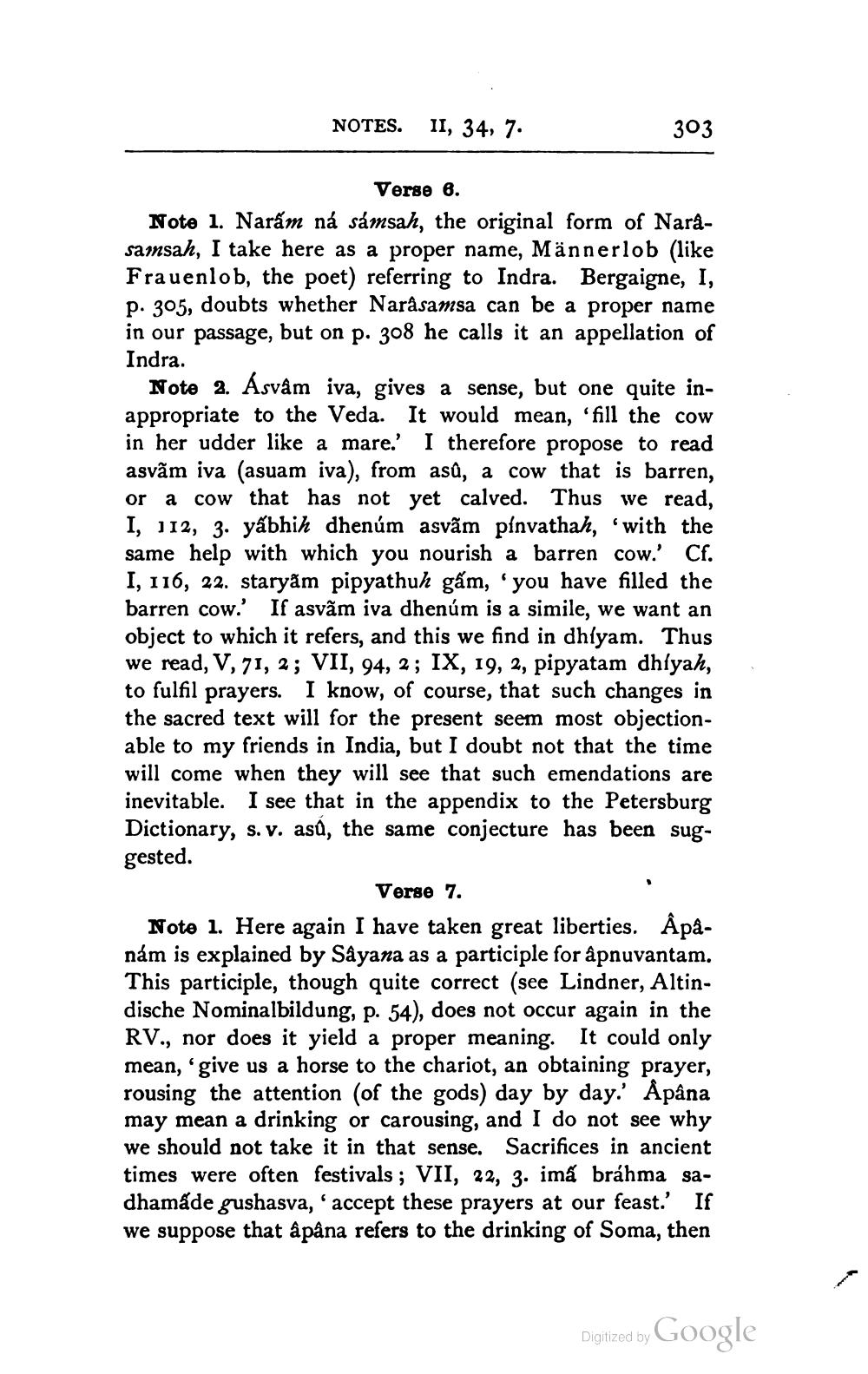________________
NOTES.
11, 34, 7.
303
Verse 6. Note 1. Narám ná sámsah, the original form of Narasamsah, I take here as a proper name, Männerlob (like Frauenlob, the poet) referring to Indra. Bergaigne, I, p. 305, doubts whether Narasamsa can be a proper name in our passage, but on p. 308 he calls it an appellation of Indra.
Note 2. Asvâm iva, gives a sense, but one quite inappropriate to the Veda. It would mean, 'fill the cow in her udder like a mare.' I therefore propose to read asvãm iva (asuam iva), from asů, a cow that is barren, or a cow that has not yet calved. Thus we read, I, 112, 3. yábhih dhenúm asvãm pinvathah, with the same help with which you nourish a barren cow.' Cf. I, 116, 22. staryām pipyathuh gám, you have filled the barren cow. If asvãm iva dhenúm is a simile, we want an object to which it refers, and this we find in dhiyam. Thus we read, V, 71, 2; VII, 94, 2; IX, 19, 2, pipyatam dhiyah, to fulfil prayers. I know, of course, that such changes in the sacred text will for the present seem most objectionable to my friends in India, but I doubt not that the time will come when they will see that such emendations are inevitable. I see that in the appendix to the Petersburg Dictionary, s. v. asů, the same conjecture has been suggested.
Verse 7. Note 1. Here again I have taken great liberties. Âpå. nám is explained by Sayana as a participle for âpnuvantam. This participle, though quite correct (see Lindner, Altindische Nominalbildung, p. 54), does not occur again in the RV., nor does it yield a proper meaning. It could only mean, 'give us a horse to the chariot, an obtaining prayer, rousing the attention (of the gods) day by day. Åpâna may mean a drinking or carousing, and I do not see why we should not take it in that sense. Sacrifices in ancient times were often festivals; VII, 22, 3. ima brahma sadhamáde gushasva, 'accept these prayers at our feast. If we suppose that âpâna refers to the drinking of Soma, then
Digitized by
Digilzed by Google




